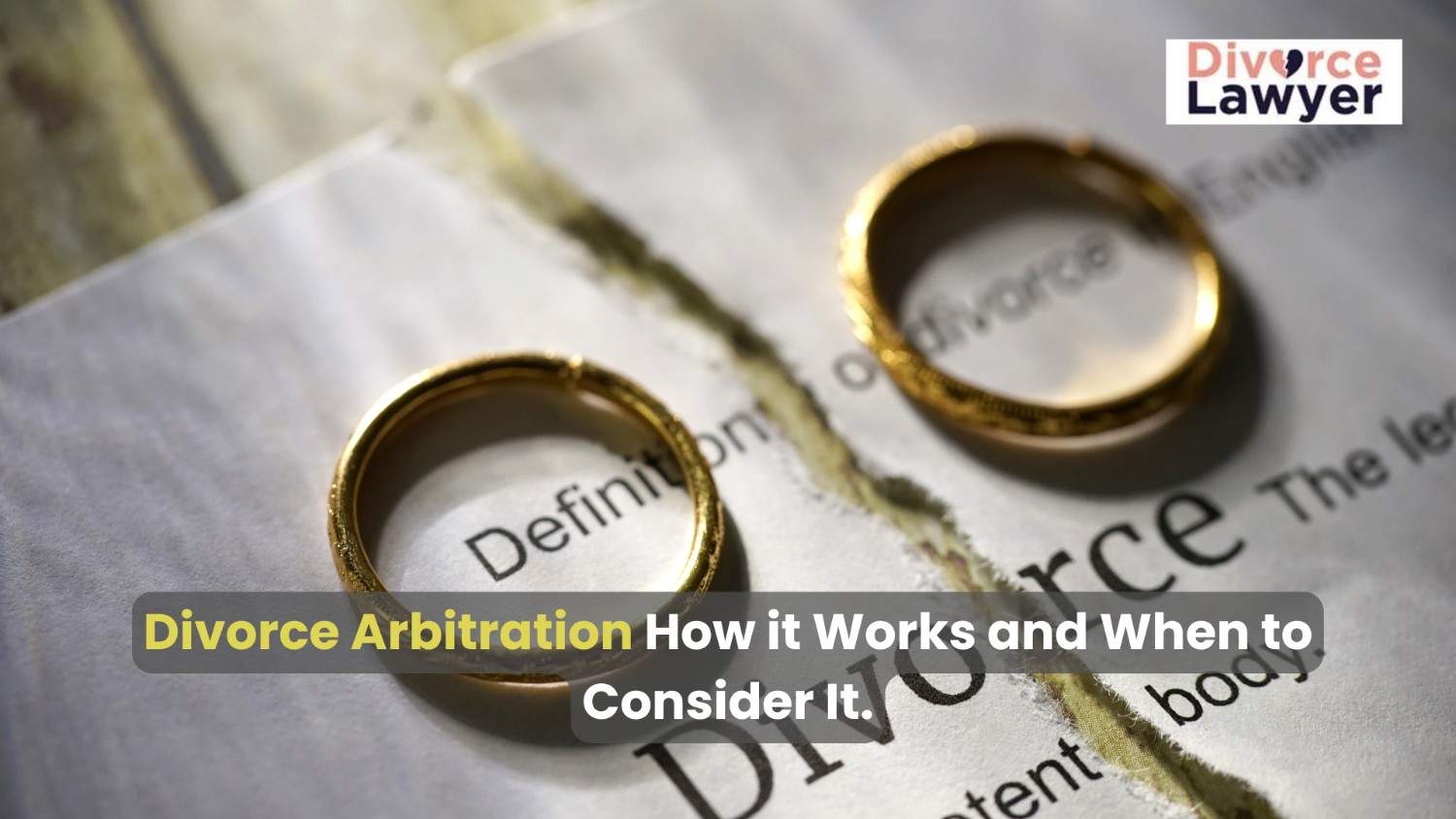· Divorce Guidance · 4 min read
Divorce Arbitration: How it Works and When to Consider It
Divorce arbitration offers a faster, private, and more amicable alternative to courtroom litigation. Learn how it works, its benefits, and when to consider it for resolving disputes efficiently and fairly during a divorce.

Divorce can be messy, emotional, and time-consuming. But what if there were a way to avoid the drama of the courtroom? Enter divorce arbitration. This alternative dispute resolution method is gaining traction for good reasons. It’s private, faster, and often more amicable than traditional litigation. So, how does it work, and when should you consider it? Let’s dive in.
Understanding Divorce Arbitration
Definition and Overview
Divorce arbitration is a legal process where a neutral third party, known as an arbitrator, resolves disputes between divorcing spouses. Unlike a mediator, an arbitrator makes binding decisions after reviewing the evidence and hearing arguments from both sides.
Key Differences Between Arbitration and Mediation
Arbitration: The arbitrator decides the outcome. It’s like having a private judge.
Mediation: A mediator facilitates discussions to help both parties reach an agreement.
The Arbitration Process in Divorce Cases
Pre-Arbitration Agreement
Before arbitration begins, both parties must agree to resolve their disputes through this method. This agreement outlines the scope of arbitration and the rules to follow.
Choosing an Arbitrator
Selecting the right arbitrator is crucial. Look for someone experienced in family law and known for fairness.
The Arbitration Hearing
Arbitration hearings are less formal than court trials. Each party presents evidence, calls witnesses, and makes arguments. The arbitrator listens carefully and deliberates.
Issuing the Arbitration Award
After the hearing, the arbitrator issues a decision, called an award. This decision is typically binding and enforceable by law.
Benefits of Divorce Arbitration
Faster Resolution
Forget waiting months for a court date. Arbitration often wraps up in weeks.
Privacy and Confidentiality
Arbitration takes place behind closed doors, ensuring your personal matters remain private.
Cost-Effectiveness
No lengthy court battles mean fewer legal fees and lower overall costs.
Flexibility in Scheduling
You and your ex can choose dates that work for both of you, unlike rigid court schedules.
Potential Drawbacks of Divorce Arbitration
Binding Nature of Decisions
Once an arbitrator decides, it’s tough to challenge the outcome.
Limited Appeal Options
Unlike court rulings, arbitration awards usually can’t be appealed, even if you think the arbitrator got it wrong.
Not Suitable for All Cases
Highly contentious or abusive situations might require the structure of a courtroom.
When to Consider Divorce Arbitration
Consider arbitration if:
You need a quick resolution.
Privacy is a priority.
The case involves complex finances.
You’re on a tight timeline.
How to Prepare for Divorce Arbitration
Understanding the Legal Framework
Familiarize yourself with the rules governing arbitration in your jurisdiction.
Preparing Documentation
Gather all necessary documents, from financial statements to custody agreements.
Effective Communication with Your Arbitrator
Be clear, concise, and respectful. Treat the arbitrator as you would a judge.
The Role of Attorneys in Arbitration
Legal Representation During Arbitration
Attorneys can present your case, ensuring you don’t miss critical points.
When Self-Representation May Work
If the issues are straightforward, you might handle arbitration yourself, but proceed with caution.
Comparison: Arbitration vs. Court Litigation
Cost Comparison
Arbitration is often cheaper than court because it involves fewer procedural steps.
Time Taken for Resolution
Arbitration can resolve disputes in weeks, while courts may take years.
Impact on Relationships
The collaborative nature of arbitration can reduce animosity.
Arbitration vs. Mediation: Which is Right for You?
If you’re looking for a decisive resolution, choose arbitration. For a collaborative approach, mediation might be better.
Common Myths About Divorce Arbitration
Myth: Arbitration Is Just Like Court
It’s more informal and quicker than court trials.
Myth: Arbitration is Always Cheaper
While often cost-effective, high fees for top arbitrators can add up.
Real-Life Examples of Divorce Arbitration Success
Case studies show that arbitration can lead to fair outcomes without the courtroom drama.
Tips for a Successful Arbitration Process
Stay calm and focused on the issues.
Consider hiring financial or child psychology experts for input.
Conclusion
Divorce arbitration offers a practical, private, and efficient alternative to court litigation. Whether it’s about dividing assets or determining custody, arbitration can make a challenging process more manageable. Explore your options and decide if this path is right for you.
FAQs
What is the typical duration of arbitration?
Most cases are resolved in a few weeks to a couple of months.Can arbitration decisions be appealed?
Appeals are rare and only possible in specific legal circumstances.Is arbitration cheaper than litigation?
Generally, yes, but costs depend on the arbitrator and case complexity.Does arbitration work for custody disputes?
Yes, but both parties must agree to arbitration for custody matters.How do I choose the right arbitrator?
Look for someone with family law expertise and a reputation for impartiality.



.B-EexUpV.jpeg)